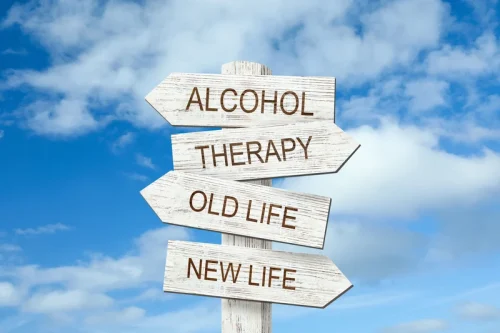7 Things That Inevitably Happen to Your Personal Life When You Get Sober
2024

Hearing the stories of others who have successfully navigated the challenges of early sobriety and found that it gets easier over time can be incredibly inspiring and motivating. From overcoming cravings and triggers to building a strong support system and accountability, these individuals provide valuable insight into making sobriety easier on the journey toward lasting sobriety. Building a strong support network is crucial in maintaining long-term sobriety. A reliable support network can provide the emotional and practical help you need to navigate the challenges of recovery and stay committed to your goals. In addition to physical symptoms, early sobriety can also bring emotional and psychological challenges. These may include unpredictable social interactions, guilt, shame, and regret.
“Stop Being Ashamed Of The Past, And Start Being Proud Of The Present.”
When you finally get over those first months of early sobriety, you’ll see that you’re not so bad after all. People who abuse alcohol get to a point in their drinking where they cannot manage any emotion in a healthy way. Drinking is the solution to boredom, frustration, sadness, and extreme happiness. It’s not uncommon to feel like you’re running on a treadmill, getting nowhere, but feeling emotionally and physically exhausted. My past relapses were largely fueled by sobriety’s inability to solve my problems for me. Instead of reaching out for help, giving AA a shot, or opening up to friends and family, I tried to Google my way to emotional stability.
The Turning Point: When Sobriety Starts Getting Easier
On the same token, alcoholism can lead to anemia and liver disease. Not to mention, addiction can also lead to depression, anxiety, and other mental disorders, which often impair the mental and physical well-being of a user. On the regular, substance abuse can lead to hangovers, excruciating withdrawal symptoms, and a weakened immune system. It can also dehydrate and deprive the body of essential vitamins and antioxidants. Long-term sobriety can have a profound impact on your mental health and emotional stability.
Alcohol Withdrawal Timeline: What Happens to Your Body When You Quit Alcohol?
” I didn’t understand I could decline to answer or that I didn’t have to make sense to everyone. For a period it was, “I’m an alcoholic,” and that tended to silence anyone (for clarification, I no longer identify as an alcoholic). These days, unless I’m feeling generous, I simply say, “I don’t drink,” and leave it at that.

For example, Dr. Kennedy notes that getting a better night’s rest can help improve a person’s mental clarity, energy levels, and even their mood. “Most individuals find that they experience more consistency in their mood and less anxiety,” says Dr. Kennedy. Which, she points out, can improve relationships and help people to discover that they can have fun without alcohol. Without alcohol to numb emotions, you can face and process feelings in a healthier way, leading to greater stability and fewer mood swings. Abstaining from alcohol can dramatically enhance your physical health.
- Being sober means you’re always in the clear to help out with a late-night lift.
- You won’t have to think about yourself as a person with no self-control or someone who says stupid things when drunk.
- Sobriety improves physical, mental, emotional, psychological and financial health.
- So if all of your friends drink alongside you, then there’s no issue, right?
PROVIDER SEARCH

By the end of this first month, your recovery will be well underway, and your struggle with alcohol will begin to become more of a distant memory than a recent struggle. When you quit alcohol after using it consistently, your body spends about a week to a week and a half adjusting to its absence. This can create dangerous withdrawal symptoms but will typically fully resolve within two weeks. Warren is a Licensed Master Social Worker, who specializes in substance abuse and mental health treatment. Clinically, Warren has developed a therapeutic skillset that utilizes a strengths-based perspective, Twelve Step philosophies, Cognitive Behavioral Therapy and Motivational Interviewing.
Be proactive. Learn HOW to feel better in sobriety.
That’s six hard, beautiful, glorious years during which I not only stopped drinking, but also finally moved on from all recreational drugs as well as a history of bulimia. Overall, sobriety offers numerous physical and mental health advancements, contributing to a healthier and more fulfilling life. Embarking on the journey to sobriety starts with acknowledging and accepting the existence of a problem. It is a transformative process that necessitates making substantial lifestyle modifications, including addiction treatment. Volpicelli says that some of the negative effects of alcohol on mental health can be reversed if you stop drinking. The basic disease model of addiction says that plenty of people use drugs or alcohol to medicate their problems away.
#282 – Sobriety is 10% Not Drinking Alcohol and 90% Emotional Sobriety

In conclusion, the journey to sobriety may be challenging, but with determination, personal growth, a strong support system, and positive lifestyle changes, it does get easier over time. By understanding the challenges of early sobriety, embracing the turning points, and applying practical strategies for staying sober, you can continue on your path to a healthier, more fulfilling life. Remember, the road to recovery being sober sucks may be long, but with each step, you’re building a better future for yourself and those around you. The early days of sobriety are often the most difficult, as you confront physical withdrawal symptoms, emotional and psychological challenges, cravings, and triggers. It’s important to recognize that these challenges are a normal part of the process, as your body and brain adjust to a life without alcohol or drugs.
- She also notes that adjusting to these changes can lead to increased self-esteem and self-awareness.
- The cumulative effects of all these new experiences and choices add up.
- Sobriety can’t vanquish all shameful memories from your brain, but it can teach you how to handle them.
- Individuals who maintain sobriety will experience more restful sleep and feel more rested the next day.
Better Focus and Cognitive Functions
“People also tend to develop longer-term strategies at this point,” notes Dr. Kennedy. You might find the motivation to make other healthy lifestyle changes, such as getting more exercise or cutting out excess sugar. By maintaining a sober life, you’ll find that your world opens up new opportunities and experiences.
I have always hated the feeling that I’m putting people out or being difficult. These activities can provide positive distractions and fulfillment, reducing the temptation to revert to substance abuse. Developing coping mechanisms for dealing with cravings and triggers is vital, as these can be significant obstacles on the path to sobriety. Maintaining sobriety can be a challenge, but with time and practice, it becomes easier. Surrounding yourself with a supportive environment and accepting setbacks as part of the process can help in stay sober.
u said